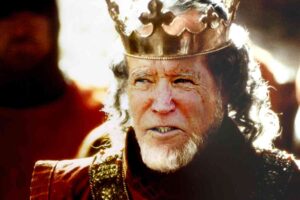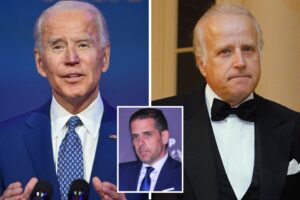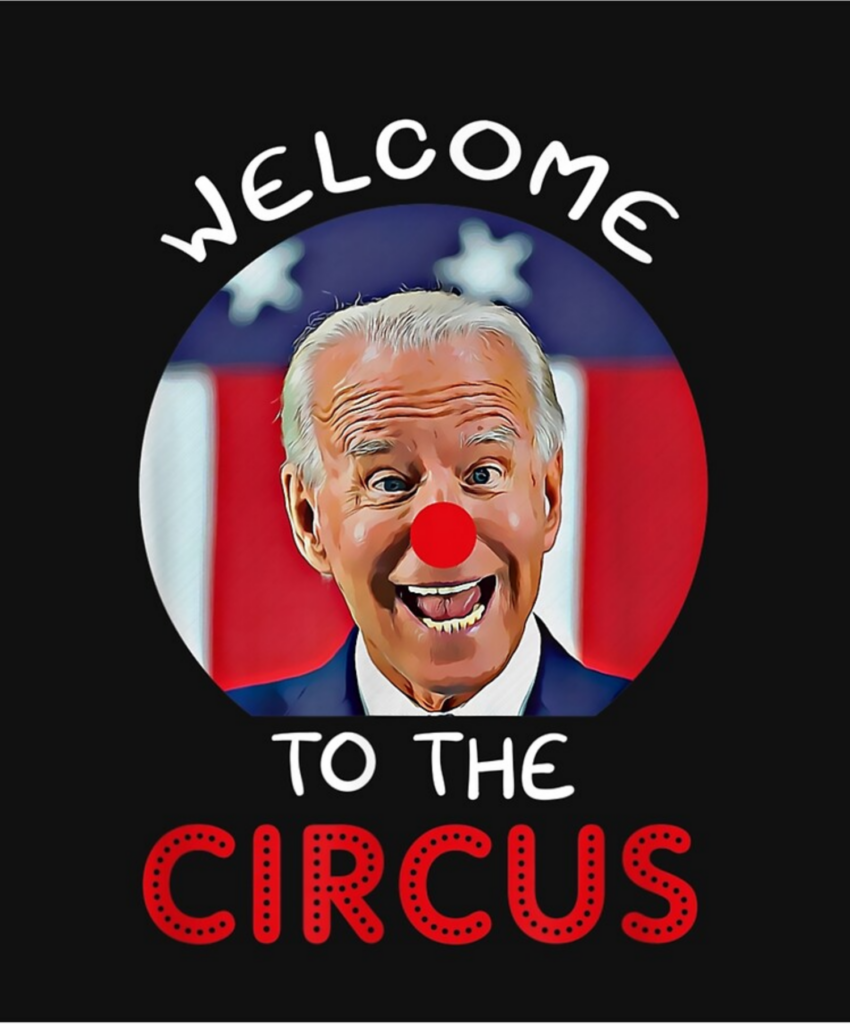After then-Vice President Joe Biden attended one dinner in April 2015 with Hunter Biden and his foreign business associates from Ukraine and Kazakhstan, business between those two countries appeared to flourish.
At about the time he attended another one in spring 2014, his son received large payments from two of the foreign attendees.
The dinners, both the subject of extensive media coverage since 2020 thanks to emails from Hunter Biden’s abandoned laptop, represent some of the most compelling pieces of evidence to date that suggests Joe Biden was more deeply involved in his son’s business dealings than he has publicly admitted.
Recent disclosures have underscored the significance of both dinners, adding crucial context to the well-known events.
Testimony last month from former Hunter Biden business partner Devon Archer, for example, contradicted Joe Biden’s previous defenses of the meetings, and bank records released earlier this month by the House Oversight Committee show that Hunter Biden received payments from a Russian and Kazakh oligarch respectively in the weeks surrounding the spring 2014 dinner, which both oligarchs attended.
Emails from Hunter Biden’s laptop also suggest that he and his business partners were specifically looking at the time for a high-profile figure to draw foreign investors to events they could use to pitch investment opportunities.
Ahead of the first dinner, which came in the spring of 2014, Hunter Biden and his business partners were discussing the prospect of convening wealthy oligarchs from around the world for gatherings in order to form a lucrative “global cooperation group.”
A potential guest list floated in March 2014 included Kenes Rakishev, a Kazakh oligarch with whom Burisma, a Ukrainian energy company the board of which Archer and Hunter Biden would go on to join, wanted to do business. Rakishev eventually attended the first dinner then-Vice President Joe Biden joined, where a widely circulated, undated photograph of Joe Biden standing next to Rakishev is likely to have been taken.

It’s unclear when in spring 2014 the dinner with Hunter Biden’s foreign business partners and Joe Biden occurred. Archer told the House Oversight Committee that the dinner took place in the spring of 2014 without providing a date.
But it was clear at the time that Hunter Biden and his partners were working to pull together their wealthy foreign associates to create investment opportunities and that they thought the attendance of someone such as Joe Biden would help their cause.
In March 2014, Archer told the group that they should find “some type of hook for the events” to draw wealthy foreigners to the gatherings, such as “an appearance from the political, literary or entertainment side.”
In April 2014, Hunter Biden pushed Archer to move ahead on “putting together that elite group we keep talking about.”
He again floated the idea of bringing Rakishev to the gathering.
Earlier this month, the House Oversight Committee published bank records revealing that Rakishev sent Hunter Biden a $142,300 payment for a sports car on April 22, 2014, the same day Joe Biden appeared alongside Ukrainian leaders in Kyiv.
Much of the press coverage of Joe Biden’s appearance that day has focused on his calls for Ukraine to eliminate the “cancer of corruption” during remarks to the Rada.
But perhaps more significantly, Joe Biden also advocated that same day for the expansion of the Ukrainian energy sector, telling Ukrainian lawmakers: “Imagine where you’d be today if you were able to tell Russia: Keep your gas. It would be a very different world you’d be facing today. It’s within our power to alter that.”

Hunter Biden and Archer appeared to recognize immediately the significance Joe Biden’s comments would have to their business partners at Burisma, a Ukrainian gas producer. Archer wrote to Hunter Biden that evening, in response to Hunter Biden’s mention of the comments, that “we need to make sure this rag-tag temporary Government in Ukraine understands the value of Burisma to its very existence.”
Hunter Biden was in the process of formalizing his board position with Burisma at the time, but his affiliation with the company was not yet public in April 2014, when his father made comments boosting Burisma’s industry.
By December 2014, months after the first dinner Joe Biden attended, Burisma and the Kazakh energy company where Rakishev served as a director were working on a memorandum of understanding to conduct business together, emails show.
In other words, the type of “global cooperation” the business partners discussed appeared to become a reality after the gathering.
Karim Massimov, then the prime minister of Kazakhstan, also attended the spring 2014 dinner, as did Yelena Baturina, a Russian oligarch who, according to emails, was a primary financial backer of real estate deals Archer was spearheading at the time.
In February 2014, according to the House Oversight Committee, Baturina wired $3.5 million into an account Archer controlled; more than $2 million of that sum then flowed into an account Hunter Biden used.
Archer testified to House Oversight that he was “really not sure why” Baturina wired that payment or why Hunter Biden received the majority of it. His lawyer shut down any further questions about Baturina during the committee’s interview, arguing that Archer had not agreed to testify about her.
Why Joe Biden met with Rakishev, Massimov, Baturina, and potentially others at Cafe Milano in Washington, D.C., during spring 2014 also remains unclear.
However, the type of international business cooperation Hunter Biden and Archer sought to generate with the first dinner appeared to continue into the following year.
By spring 2015, Hunter Biden was discussing the prospect of another dinner with a new foreign business associate: Michael Karloutsos, the son of Alex Karloutsos, who is one of the most prominent leaders of the Greek Orthodox Church in America.
Hunter Biden and the younger Karloutsos were chasing lucrative business deals in Greece. In March 2015, according to emails, Hunter Biden ditched his Secret Service detail to meet with Karloutsos in Athens as they sought to line up Romanian and Chinese investments in a potential project.
At about that time, Hunter Biden and Karloutsos appeared to discuss plans for the dinner Joe Biden would eventually attend the following month.
Like with the first dinner, the full guest list and the purpose of the April 16, 2015 dinner, also at Cafe Milano, are not yet known.
Archer testified that he recalled just four attendees other than Joe Biden, Hunter Biden, and himself, while emails reveal discussions about guest lists that ran as high as 16 people.
Hunter Biden appeared interested in keeping plans for the dinner secret.
Ten days before the gathering, Hunter Biden wrote in an email that he wanted to keep the dinner “as low-key quiet as possible.”
“You know the reason I want to keep it in the family,” he wrote to Michael Karloutsos later that day, referring to the dinner.
In those same emails, Hunter Biden told his Greek associate that “the reason for the dinner is ostensibly to discuss food security,” although his subsequent messages appeared to undercut that.
Joe Biden’s team has repeatedly obfuscated on whether and why he attended the dinner.
Former vice presidential aides and a campaign spokesperson initially told the Washington Post fact-checker in 2020 that the dinner did not appear on Joe Biden’s schedule for the day it took place, April 16, 2015, and they denied that Joe Biden attended at all.
After other attendees later confirmed that Joe Biden did indeed attend, an anonymous White House aide admitted to the fact-checker that Joe Biden had gone to the dinner but that the decision to do so was made earlier in the day on April 16. The spontaneous choice to drop by, not an attempt to conceal the event, was why the dinner did not appear on the then-vice president’s schedule, the aide claimed.
But Hunter Biden’s emails suggest Joe Biden’s presence at the dinner was strategic and planned long in advance.
In a March 26, 2015, email to the younger Karloutsos, Hunter Biden confirmed his father would attend the dinner, and Michael Karloutsos indicated that Joe Biden’s participation had been discussed even earlier than that.
“Dad will be there, but keep that ‘btw’ us for now,” Hunter Biden said.
The White House’s claim on why the April 16 dinner did not appear on the schedule does not square with the evidence that Joe Biden had agreed to appear on behalf of his son at least three weeks in advance.
The White House did not respond to a request for comment on the disconnect.
Archer testified that the second dinner’s guests included Massimov, who was then the Kazakh prime minister, Vadym Pozharsky, a Burisma executive, Alex Karloutsos, the Greek Orthodox Church leader, and a World Food Program executive, later reported to be then-World Food Program USA CEO Rick Leach.
Leach claimed to the Washington Post fact-checker in 2021 that Joe Biden spoke only to Alex Karloutsos, his longtime friend, at the dinner and said the then-vice president stayed only briefly at the gathering.
But Archer said last month that that part of the story was “not correct reporting,” noting that Joe Biden spoke with the entire table and stayed for the entire dinner.
“I don’t recall” the topics of discussion, Archer testified, although he said, “We were supposed to talk about the World Food Programme.”
At least some Burisma business appeared to get done at the April 16, 2015, dinner that Joe Biden attended.
Three days before the gathering, Archer and Kazakh officials appeared to discuss the prospect of handing then-Kazakh Prime Minister Massimov a letter that outlined Burisma’s work in Kazakhstan up to that point, including what the foreign business partners complained was “very slow progress” at the Kazakh gas company where Rakishev, the Kazakh oligarch who bought Hunter Biden a sports car, worked as a director.
Less than three months later, Archer indicated in an email with updates about Burisma’s work in Kazakhstan that he had “a copy of the letter we delivered to the PM at dinner.” In the same chain, Pozharsky, the Burisma executive, confirmed that the letter had been transferred in Washington, D.C., where the dinner took place.
And in those emails, the Burisma executive and Hunter Biden business partner detailed several ways the Ukrainian company’s interests in Kazakhstan were progressing.
The messages suggest that Burisma’s effort to expand its energy business in Kazakhstan was brought up at the dinner, which Joe Biden attended.

